Life
Sign up for our newsletter
We summarize the week's scientific breakthroughs every Thursday.
-
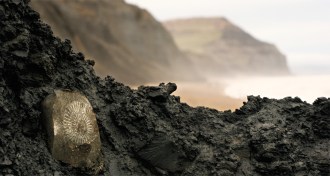 Paleontology
PaleontologyHunting fossils in England
On Monmouth Beach, just west of the center of Lyme Regis, amateur and professional collectors have been making discoveries for more than two centuries.
-
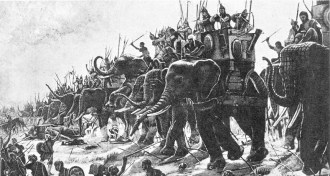 Archaeology
ArchaeologyAfter 2,000 years, Ptolemy’s war elephants are revealed
A genetic study sheds light on world’s only known battle between Asian and African elephants.
-
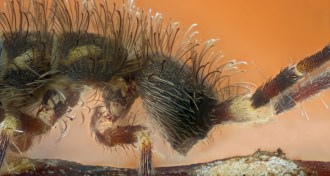 Animals
AnimalsSperm on a stick for springtails
Many males of the tiny soil organisms sustain their species by leaving drops of sperm glistening here and there in the landscape in case a female chooses to pick one up.
By Susan Milius -
 Neuroscience
NeuroscienceCaffeine’s little memory jolt garners a lot of excitement
A new study claims that caffeine can perk up memory consolidation in students without a caffeine habit. But concerns about the effect size and the statistics in the paper require a little extra shot of replication.
-
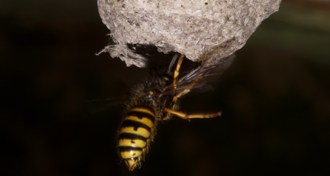 Animals
AnimalsInsect queens sterilize workers with similar chemical
When exposed to a form of saturated hydrocarbons that mimicked the queen’s scent, the worker insects’ ovaries degraded.
-
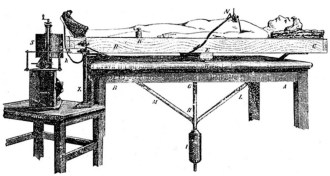 Neuroscience
NeuroscienceThinking hard weighs heavy on the brain
A balance measures the tiny changes in force due to blood flow behind a person's thoughts.
-
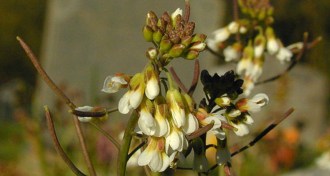 Plants
PlantsPlants’ ATP collector found
Scientists identified two genes that write the code for the molecules, or receptors, that pull ATP into plant cells.
-
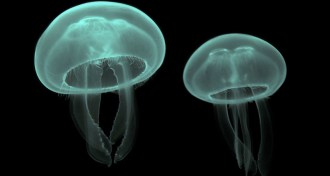 Animals
AnimalsJellyfish bloom in spring when winter ‘timer’ dings
The coordinated appearance of the adult form of the animal is the result of a metamorphosis hormone that accumulates during winter months.
-
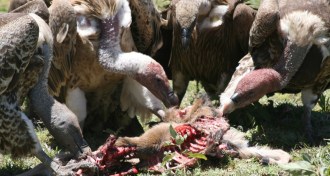 Animals
AnimalsAfrican vultures follow the dead, not the herd
Wildebeest may be numerous, but they’re not attractive to carrion-eating birds unless they’re about to die.
-
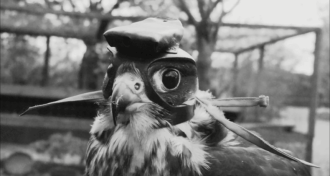 Animals
AnimalsHead cam shows how falcons track prey
Falcons use motion camouflage to capture flying prey, a new study shows.
-
 Genetics
GeneticsLife at the Speed of Light
Biology has come a long way from the days of mixing things in petri dishes and hoping something interesting happens. In his new book, Venter introduces readers to a future of precise biological engineering.
-
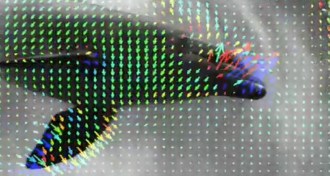 Animals
AnimalsSwimming dolphins don’t need to cheat
Dolphins swimming through bubbles burst old notion of underpowered muscles.
By Susan Milius